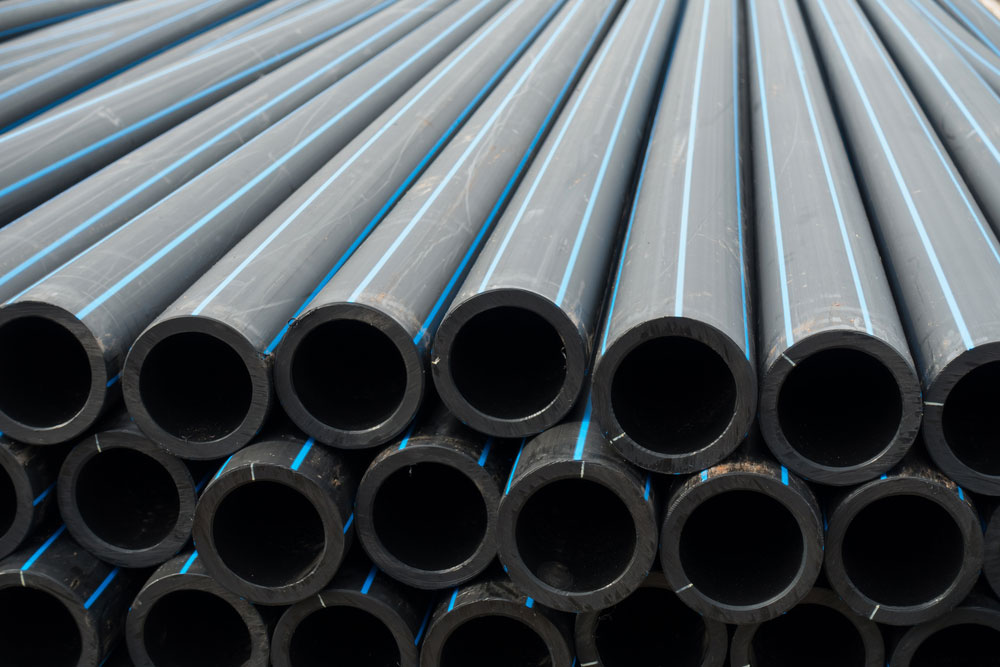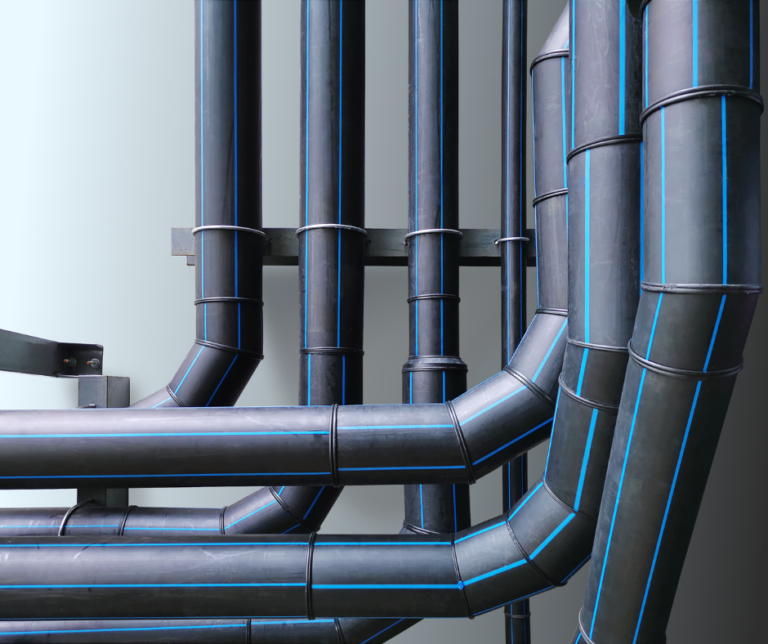How Midland TX HDPE Pipe Fittings in Stock Save Time
Wiki Article
A Comprehensive Guide to the Various Usages of HDPE Pipeline in Building And Construction and Sector
HDPE pipes have arised as a crucial element in contemporary building and commercial applications. Their one-of-a-kind buildings, such as resistance to deterioration and light-weight layout, make them appropriate for a large range of uses. From water systems to agricultural irrigation, HDPE pipes offer services that improve effectiveness and sustainability. Comprehending their diverse applications is necessary for experts wanting to optimize infrastructure. What certain advantages do these pipes offer each market?Water and Distribution Systems
Water and circulation systems are vital components of metropolitan facilities, frequently relying upon high-density polyethylene (HDPE) pipelines for their toughness and effectiveness. These systems transport safe and clean water from treatment facilities to customers, ensuring access and security. HDPE pipes are preferred for their resistance to rust, chemicals, and extreme temperature levels, which improves their longevity and lowers maintenance expenses. Additionally, their light-weight nature permits less complicated setup and transport, making them suitable for various city and rural applications.The adaptability of HDPE pipes enables them to be mounted in tight rooms and around barriers, minimizing the need for substantial excavation (American Plastics HDPE Pipe Manufacturing). Moreover, their smooth indoor surface reduces rubbing losses, boosting water flow rates. As cities proceed to grow, the demand for trusted supply of water systems raises, placing HDPE pipes as a sustainable service for contemporary framework tasks. Their proven track record makes them a preferred option amongst designers and city organizers alike
Wastewater Monitoring and Treatment
Effective wastewater management and therapy are essential for keeping public wellness and ecological top quality. HDPE pipelines play a vital duty in this procedure as a result of their resilience, resistance to rust, and capability to endure severe chemicals. These pipes are typically used in various applications, consisting of sewer systems, stormwater water drainage, and wastewater treatment facilities. Their lightweight nature facilitates easier installment and transport, reducing labor prices and time.Additionally, HDPE pipes have a smooth indoor surface that decreases friction loss, advertising efficient circulation prices. They are likewise much less prone to leakages and failings compared to standard products, guaranteeing that impurities are included properly. Furthermore, their adaptability enables versatility in different soil conditions, making them appropriate for varied environmental settings. As sectors increasingly prioritize lasting practices, using HDPE pipelines in wastewater monitoring systems aligns with goals for minimizing ecological impact and improving source recuperation.
Agricultural Watering Solutions
In agricultural settings, efficient irrigation options are essential for enhancing crop returns and managing water resources. HDPE (High-Density Polyethylene) pipes play a crucial function in modern-day watering systems as a result of their durability, flexibility, and website link resistance to corrosion. Their capability to hold up against high stress makes them ideal for both surface and subsurface irrigation applications, guaranteeing uniform water distribution across fields.Farmers can utilize HDPE pipelines in drip watering systems, which supply water straight to plant origins, lessening waste and advertising healthy growth. Additionally, these pipes are light-weight and very easy to mount, reducing labor costs and installment time. Their lengthy life-span and reduced maintenance requirements further enhance their allure in farming methods.
HDPE pipes are eco pleasant, as they can be recycled and do not leach dangerous chemicals right into the dirt. This makes them a sustainable choice for farmers intending to embrace eco-friendly farming approaches while making the most of productivity.
Industrial Applications and Procedures
Flexibility is a hallmark of HDPE pipelines, making them essential in numerous commercial applications and processes. These pipelines are widely made use of in chemical processing industries because of their excellent resistance to a wide variety of harsh materials. HDPE's light-weight nature, combined with high tensile stamina, permits simple installation and long-lasting performance popular atmospheres.In the oil and gas field, HDPE pipes play a necessary duty in delivering hydrocarbons and gases, many thanks to their toughness and versatility - Pipe Supplier American Plastics Midland. In addition, they are employed in mining procedures for the transport of slurry and other materials, where standard piping systems might fall short
HDPE pipelines are progressively utilized in producing facilities for water supply lines and wastewater monitoring. Their ability to endure extreme temperatures and stress makes them ideal for a selection of commercial plumbing line procedures. On the whole, HDPE pipelines add significantly to effectiveness and security throughout diverse Homepage commercial applications.
Stormwater Management and Drainage Systems
Stormwater administration and water drainage systems are crucial parts in city framework, designed to take care of excess rainfall and reduce flooding dangers. High-density polyethylene (HDPE) pipes are increasingly utilized in these systems as a result of their durability, versatility, and resistance to corrosion. These pipes effectively carry stormwater away from populated areas, reducing surface drainage and avoiding waterlogging.HDPE's lightweight nature promotes simpler installation, lowering labor prices and construction time. Additionally, its resistance to chemicals and ecological stressors assurances longevity and reliability in different climates. Along with standard drain applications, HDPE pipes are additionally employed in cutting-edge options such as environment-friendly facilities, that includes rain yards and absorptive sidewalks.

Frequently Asked Questions
How Does HDPE Pipe Compare to PVC Pipe in Expense?
As a whole, HDPE pipeline has a tendency to be a lot more costly than PVC pipe due to its enhanced sturdiness and flexibility. Long-lasting cost factors to consider, such as upkeep and life-span, may prefer HDPE in particular applications.What Is the Life-span of HDPE Piping Under Diverse Conditions?
HDPE pipelines normally have a life-span of 50 to 100 years, relying on environmental problems, setup practices, and use. Elements such as temperature level, soil kind, and exposure to chemicals can considerably influence their longevity.Can HDPE Water Lines Be Recycled After Use?
Yes, HDPE pipes can be reused after use. The reusing procedure involves melting down the product, enabling it to be repurposed into new products, consequently promoting sustainability and minimizing ecological effect connected with plastic waste.Are There Any Kind Of Specific Setup Obstacles With HDPE Pipelines?
Installation difficulties with HDPE pipelines include appropriate jointing strategies, ensuring appropriate trench problems, and taking care of thermal expansion. Furthermore, experienced labor is needed to deal with customized equipment, which can complicate the setup procedure in various environments.
What Qualifications Should I Seek When Getting HDPE Pipes?
When buying HDPE pipelines, one need to try to find certifications such as ASTM, AASHTO, and ISO, which validate high quality and compliance with sector requirements, guaranteeing longevity and efficiency in various applications. - Pipe Supplier American Plastics MidlandReport this wiki page